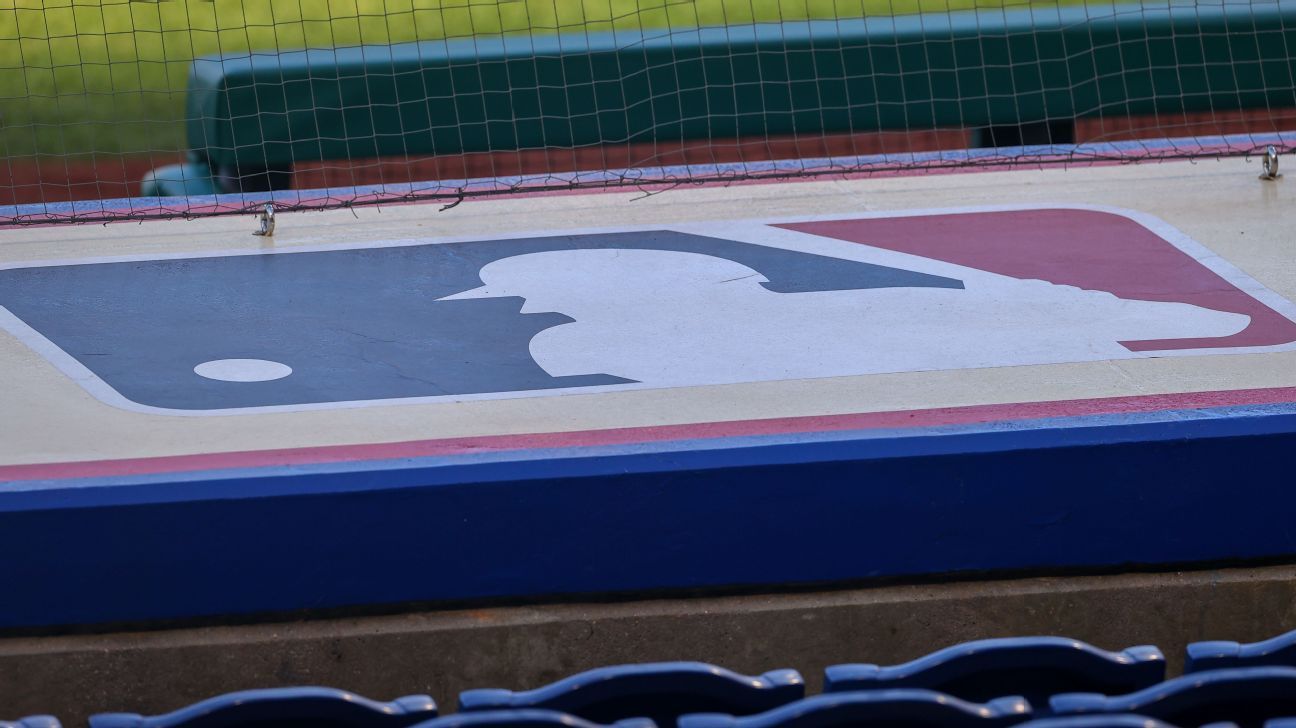Major League Baseball asked for the ability to eliminate hundreds of minor league playing jobs in its latest labor offer to the MLB Players Association, sources familiar with the proposal told ESPN.
Currently, the Domestic Reserve List — which governs the number of minor league players a team can roster at any time — is at 180. The league proposed keeping the number at 180 for 2022 but allowing the commissioner’s office to reduce the maximum number of players to as few as 150 over the rest of the collective bargaining agreement, sources said. The proposal says the league could adjust the reserve list’s size “up or down.”
MLB, according to a league source, has no plans to reduce the size of the list in 2023 but wants the flexibility to do so in future seasons.
The league previously had proposed controlling the size of the Domestic Reserve List multiple times, each of which was rejected by the MLBPA, a union source said. While the union has not formally responded to the most recent version of the plan, the source said, the players intend to reject it and any future proposals that could cut minor league jobs.
The minor leagues already have undergone a massive overhaul in recent years. In December 2020, MLB eliminated 42 teams — and an unknown number of playing jobs — implementing a structure in which 120 teams were spread out evenly among the 30 major league clubs: one Triple-A, Double-A, High-A and Low-A affiliate each. Any change to the reserve-list size would not affect the number of minor league teams, as nine years remain on the 10-year contracts the 120 clubs signed with MLB.
The Domestic Reserve List was implemented as part of the changes. The league, a league source said, regarded 180 players as a high number owed to the new minor league system and the missed year of development due to COVID-19. Teams previously were not limited in the number of players they could have under minor league contracts. Five teams presently have more than 180 minor leaguers on their Domestic Reserve List, according to the source. (Teams can have up to 190 players on it during the offseason.) Two teams, the source said, have fewer than 150.
The potential roster trimming was part of a 28-point package on transactions that included a proposal to limit the number of options — or times a player can be returned from the major leagues to the minor leagues in one season — to five, according to sources. Currently, teams hold unlimited options on qualifying players within a single season, allowing the shuttling of some between Triple-A and the major leagues.
MLB locked players out Dec. 2 after the expiration of the previous basic agreement. While the union does not represent minor league players, issues that affect those not on 40-man rosters — such as the amateur draft and international signing system — are part of negotiations.
During earlier negotiations in July 2021, the union proposed a 20-round domestic amateur draft, one of the few items on which it and the league have agreed, according to sources. During the pandemic-shortened 2020 season, the draft was reduced from the previous standard 40 rounds to five. Last year, the draft was 20 rounds, with 612 high school and college players drafted. Under the 20-round proposal, undrafted players are free agents who can sign with any team.
Issues concerning the treatment of minor league players have vaulted to the forefront in recent years, with a class-action lawsuit over low wages currently in federal district court, the below-minimum-wage salaries for minor leaguers a long-standing problem and teams in 2022 for the first time mandated by the league to provide housing for minor league players. MLB raised pay to minor leaguers in 2021, with the minimum salary for a Triple-A player at $16,800, Double-A at $14,400, Class A at $12,000, complex league at $9,600 and Dominican Summer League at $3,000.
In a hearing Friday for the federal case, a lawyer for MLB argued that minor league players should continue to be unpaid during spring training because they “obtain the greater benefit from the training opportunities that they are afforded than the clubs, who actually just incur the cost of having to provide that training.” In court, The Athletic reported, the league previously had said players receive thousands of dollars in value a week, arguing that amateurs pay such sums to train.
Under the league’s proposal, it would inform the union of changes to the Domestic Reserve List before the first date in spring training that a team can option a player, according to sources. Anyone who signs a minor league contract would be added to the Domestic Reserve List within 15 days of signing the deal or when he appears in his first game, sources said.
Teams can carry an additional 70 minor league players on an International Reserve List if they have two Dominican Summer League teams and 35 if they have one. Players on the Domestic Reserve List who are not assigned to one of the four affiliated teams can be on a team’s rookie-league rosters in the Arizona Complex League and Florida Complex League, where they play at a team’s spring training site.
